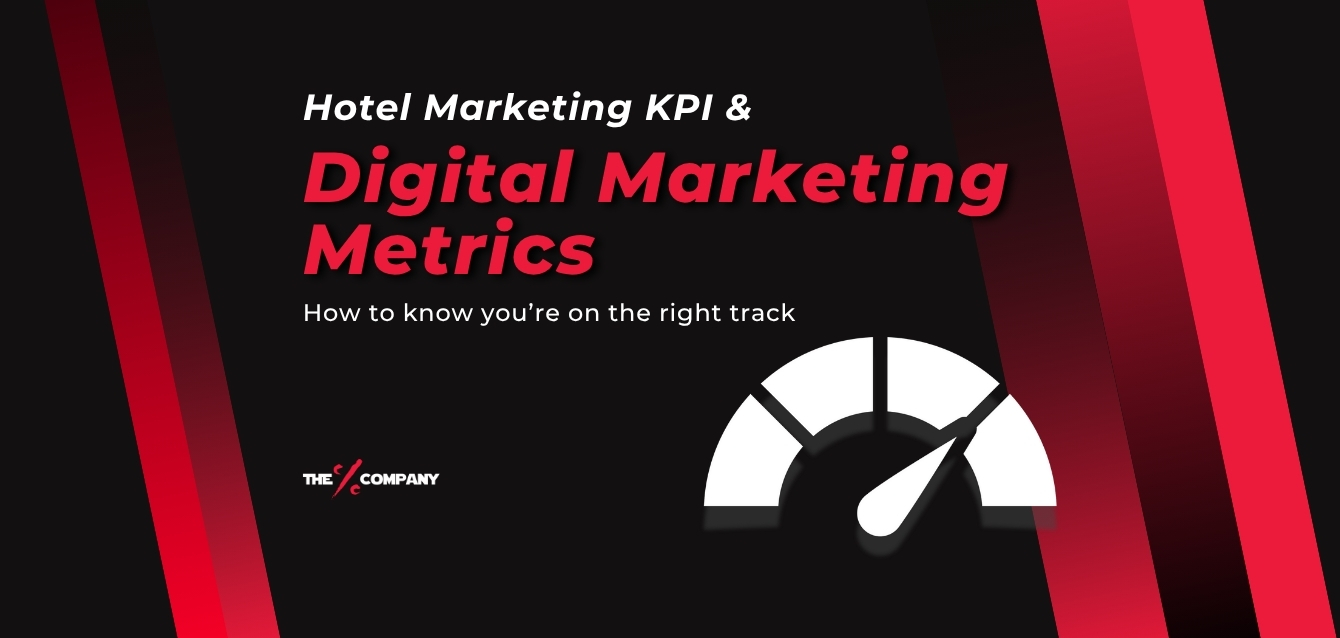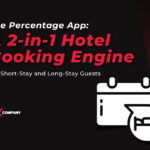In 2023 and beyond, digital marketing plays a pivotal role in attracting and retaining guests for your hotel, and the importance of data analysis can not be overstated. As co-founder of one of Thailand’s leading hotel digital marketing agencies, and having worked within hotels for many years, I certainly understand the significance and role of monitoring Hotel KPI and Digital KPI (Key Performance Indicators) in optimizing your hotels marketing strategies.
In this KPI guide, we’ll delve into hotel KPI plus some of the need-to-know digital marketing metrics, and illustrate how judicious analysis of these indicators can play an important role in steering your hotels in a successful direction.
Understanding Hotel KPIs
There are literally dozens of hotel KPI that we could mention, but for the purposes of this article, here are some of the key indicators that you can use to assess and benchmark your hotel’s performance:
- Occupancy: Perhaps the most widely known hotel KPI is Occupancy. Occupancy is a fundamental KPI that measures what percentage of your available rooms are occupied over a specific date range. This metric not only provides insights into how well a hotel is utilizing its inventory but also helps in forecasting demand and revenue for future dates.
- Average Daily Rate (ADR): ADR is a critical sales & marketing Key Performance indicator for your hotel, and represents the average revenue you earned per occupied room in a given date range. By monitoring ADR, you can gauge your pricing strategy’s effectiveness and hopefully identify opportunities for revenue growth.
- Revenue per Available Room (RevPAR): RevPAR is a holistic metric that combines both your hotel’s occupancy and ADR, offering an overview of a hotel’s financial performance, by showing how much revenue you are making per available room, whether occupied or not. This KPI is invaluable for benchmarking against competitors and assessing the overall health of sales and marketing at your hotel.
Understanding Digital Marketing KPIs
Here are just some of the Hotel KPI plus metrics that you should consider when assessing the performance of your digital marketing strategies:
- Customer Acquisition Cost (CAC): In digital marketing for hotels, like in any business, understanding the cost of acquiring a new customer is imperative. CAC involves identifying the total expenses or costs associated with gaining a guest, encompassing marketing costs, advertising expenses, and other related overheads.
- Return on Ad Spend (ROAS): Online advertising should be a significant component of hotel marketing, ROAS or Return on Ad Spend measures the revenue generated for every dollar spent on advertising. This KPI is essential for evaluating the efficiency of digital marketing campaigns and optimizing future campaigns and strategies.
- Website Traffic: A high volume of website traffic is indicative of a strong online presence. By tracking website visits, a hotel can identify the effectiveness of its digital marketing efforts and the resonance of its online content. Website traffic can be generated by organic means (SEO, Email Marketing, Social Media) or by paid means (PPC, SEM).
- Conversion Rate: Converting website visitors into actual bookings is the ultimate goal of your website, so this should be one of the leading metrics and KPIs that you monitor. Your conversion rate measures the percentage of visitors who make a booking on your site as a percentage of the total number of people who visit your website. A low conversion rate may indicate that your site is not interesting or engaging to your visitors and you may need help to optimize your website or hotel marketing strategy.
- Social Media Engagement: For Social Media, monitoring your engagement metrics (likes, shares, comments) is crucial. Social media platforms serve as powerful tools for building brand awareness and connecting with potential guests in an era where users conduct more and more research and gather social proof before booking their accommodation.
- Email Marketing Metrics: Email remains a potent channel for marketing hotels. Metrics such as open rates, click-through rates, and conversion rates from email campaigns provide insights into the effectiveness of your email communication strategies.
- Customer Reviews and Ratings: Online reviews and ratings on OTA booking platforms like Booking.com, Agoda, Expedia, TripAdvisor or Google My Business are integral to building a hotel’s online reputation. Monitoring these metrics helps in understanding guest satisfaction levels and addressing any issues promptly and setting your hotel on a path to better reviews. Better reviews often result in improved sales performance.
Implementing a Data-Driven Approach
Now we know some of the key metrics and KPI for digital marketing of hotels, we can start to focus on how these can be used to help drive your hotel onwards and upwards:
- Integrated Analytics Platforms: Sophisticated analytics platforms and tools like Google Analytics, Google Tag Manager, Meta & your PMS’s Business Intelligence reporting are essential for you to build an understanding of your hotels sales and marketing performance. These tools can provide a consolidated and holistic view allowing you to derive actionable data which can inform your marketing spend and decision making.
- Customized Dashboards: Developing customized dashboards for KPI reporting allows you to visualize your hotels KPI in real-time and facilitates quick actions and adjustments using a data led approach to market your hotel.
- Regular Performance Audits: Conducting regular audits of KPIs is crucial for staying ahead of market dynamics. Whether it’s a monthly review or a quarterly deep dive, consistent analysis helps in identifying patterns, anomalies, and areas for improvement.
- Competitor Benchmarking: Comparing hotel KPIs with industry benchmarks and competitors data (if you are able to get it) provides context to your performance metrics. This benchmarking exercise aids in identifying areas where your hotel outperforms the market and most importantly, identifies areas that require improvement.
Key Takeaways
Digital marketing for hotels is an ever-changing and constantly evolving environment. What does not change, is the fact that Digital and Hotel KPI plays a pivotal role in how your hotel can adapt and overcome the challenges you face. Key Performance Indicators should serve as your compass to navigate this dynamic terrain, offering insights that can help shape your marketing strategies and drive your hotel in a successful direction.
As a co-owner of a digital marketing agency here in Thailand, and a tech advocate for almost 25 years, I’ve witnessed firsthand the transformative power of data analysis. From optimizing your occupancy to improving ADR, to improving email open-rates to optimizing your ad campaigns, data offers the key and can be the cornerstone of sustainable growth for your hotel.
By understanding and leveraging hotel KPI and digital marketing metrics, hotel owners can not only enhance operational efficiency but also foster a stronger connection with their target audience. As we continue to embrace the digital age, the synergy between data analysis and strategic decision-making will undoubtedly define the success stories of hotels in Phuket, in Thailand and beyond.
Are you looking for a hotel digital marketing expert to help you understand and interpret your hotel KPI? At The Percentage Company we provide a wide range of affordable hotel digital marketing packages to help hotels navigate the digital marketing landscape with minimal fuss, leaving your team to focus on making your property the best it can be. Ask us about our extremely affordable 360-degree digital marketing packages for hotels in Thailand today!

Written By: Edward Kennedy
Co-Founder & Director at The Percentage Company. I started working on websites in 1997 and have been a full-time techie since 2001. I’m committed to leveraging the latest technologies and digital marketing techniques to drive efficiency & improve online sales for our hotel clients. I have a 20+ year track record of success in growing independent hospitality & real estate brands.






